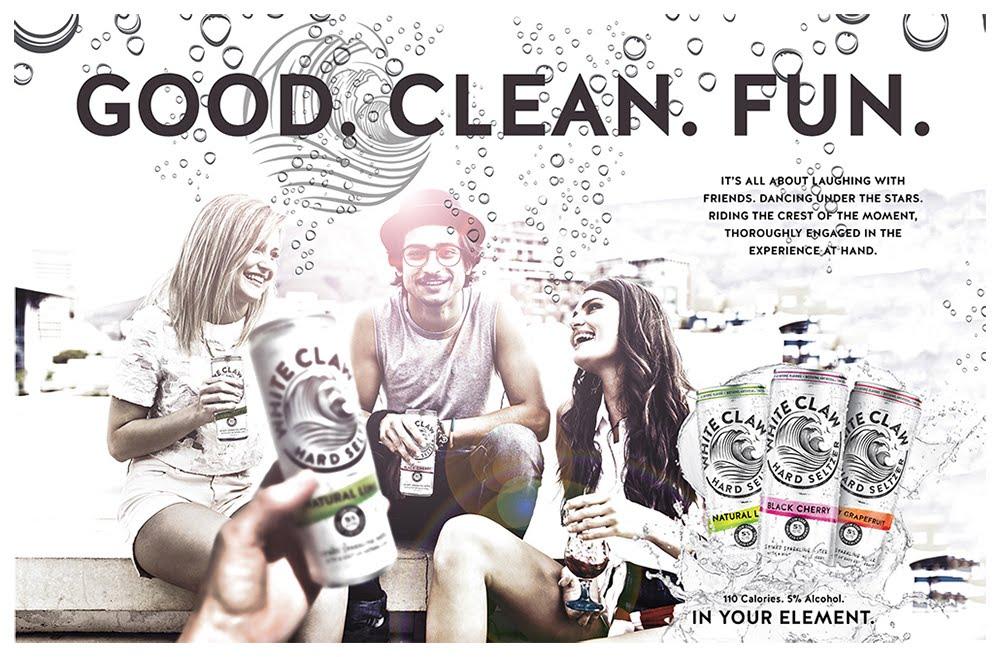The purpose of the advertisement and the target market
The purpose of the advertisement is to increase sales and form a positive attitude towards the product. The target market lies at the intersection of sparkling water, beverages, and alcoholic drinks. The primary target audience is millennials and people pursuing a healthy lifestyle or aiming at losing weight.
Meeting ethical standards in the advertisement
Because of the brand’s slogan “made pure,” one gets the impression that the drink is made from “pure” alcohol, which means it is not as harmful as compared to beer or wine. In the analyzed advertising image, the slogan “Good. Clean. Fun” also strives to create in customers the feeling that this is not a harmful alcoholic drink, that is, a product that is harmful to health, but a safe drink that accompanies the life of progressive people (Picture 1). The manufacturer exploits the trend of a healthy lifestyle while hiding the potential and actual disadvantage of the drink – its harm to health. Thus, this advertisement does not meet ethical standards in advertising. Even if freedom of speech can serve as a counterpoint, freedom of choice does not work here as an argument since the buyer is deprived of an accessible and unambiguous message about all the properties of the product. Accordingly, the buyer himself is deprived of the possibility of free choice.
Legal issues considering the advertisement
In fact, this advertisement does not have any legal issues since the product is promoted utilizing abstract words with semantic validation (Andjelic, 2020). A legal issue would arise if their slogan were “Good. Healthy. Fun”. However, although legally they meet all the Federal Trade Commission expectations, the semantic structure of the slogan still misleads the consumers.
Senior business manager’s view on the advertisement
My actions would involve a utilitarian viewpoint on ethics: I would assess how much damage my decisions would create. For example, if I decide not to pull an advertisement since it crossed an ethical line, and this decision results in my business’s losses in such a way that I would need to close the company, a lot of employees might suffer from unemployment afterward.

Reference
Andjelic, A. (2020). The Business of aspiration: How social, cultural, and environmental capital changes brands. Routledge.